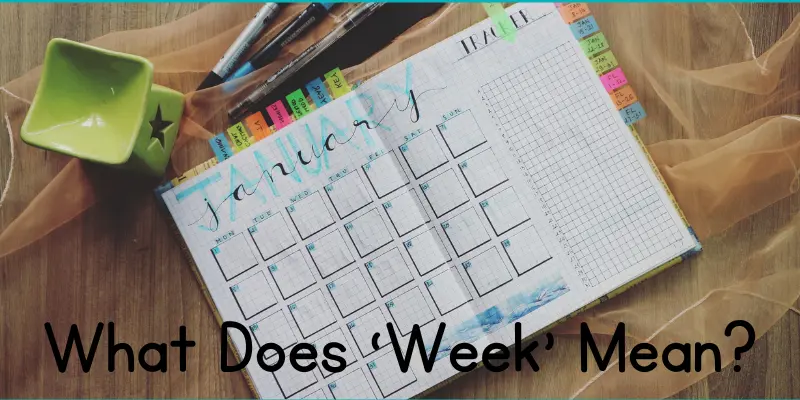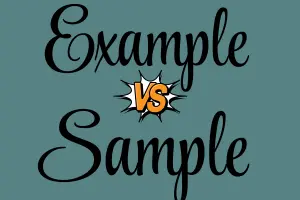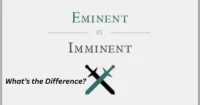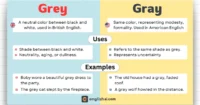Weak vs Week – How to Tell Them Apart
Published: 20 Dec 2024
Have you ever gotten confused by words that sound the same but mean different things? Weak vs week is a perfect example of this.
The words “week” and “weak” are homophones that sound similar but mean very different things. “Week” is a noun that refers to a period of seven days and “Weak,” is an adjective used to describe something that isn’t strong.
Understanding the distinction between weak vs week is important to avoid making mistakes in your writing or speech.
Let’s dive into their meanings and learn how to use them correctly!
What Does ‘Weak’ Mean?

“Weak” is an adjective that describes a lack of strength, power, or effectiveness. It can refer to physical strength, emotional vulnerability, or even the fragility of objects.
Examples of ‘Weak’ in Sentences
- “He felt weak after running for hours.”
- “She has weak eyesight and wears glasses.”
- “The rope is weak and might break.”
In these examples, weak directly refers to a lack of strength or power, whether physical, emotional, or structural.
Usage Tips for ‘Weak’
Think of weak as relating to strength or power. Whenever you’re discussing someone’s lack of energy, fragility, or poor health, use weak.
What Does ‘Week’ Mean?

A “week” is a noun that refers to a period of seven days, usually starting on Sunday and ending on Saturday. The concept of a week is central to organizing time, whether for business, education, or personal schedules.
Examples of ‘Week’ in Sentences
- “I have a meeting scheduled for next week.”
- “There are 52 weeks in a year.”
- “My family is going on vacation next week.”
In these sentences, week refers to a set period of time (seven days).
Usage Tips for ‘Week’
When you think of week, remember it’s all about time. It’s a recurring period used to measure days.
Week and Weak Meaning in Hindi
Understanding the difference between week and weak is essential, especially for learners. Both words are homophones, which means they sound the same but have different meanings and spellings. Let’s explore their meanings in Hindi.
- Week (सप्ताह): This refers to a period of seven days, like Monday to Sunday. For example, “पिछला सप्ताह बहुत व्यस्त था।” (Last week was very busy.)
- Weak (कमज़ोर): This indicates a lack of strength, power, or energy. For example, “मैं आज बहुत कमज़ोर महसूस कर रहा हूँ।” (I am feeling very weak today.)
Key Tip
When you think of week, remember it relates to time (सप्ताह). For weak, it’s about strength or the lack of it (कमज़ोरी).
By keeping this distinction in mind, you can use these words confidently and correctly.
Key Differences Between ‘Weak’ and ‘Week’
Although weak and week sound identical, they have different meanings and uses. Here’s a simple breakdown of the two:
| Aspect | Weak | Week |
| Meaning | Lacking strength or power | A period of seven days |
| Type | Adjective | Noun |
| Example Sentence | “The player felt weak.” | “See you next week.” |
Pronunciation Tip
Remember, these two words sound the same but are spelled differently. The pronunciation is identical, but the context will tell you whether it refers to strength or time.
Memory Trick
- Weak contains an “a,” which can help you remember it relates to “lack” of strength.
- Week has two “e’s,” which can remind you of the days of the week.
Common Mistakes and How to Avoid Them
It’s easy to confuse weak and week because they sound the same. Here are some common mistakes:
Examples of Misuse
- “I felt week after my workout.” (Incorrect)
- “I can’t wait for next weak.” (Incorrect)
How to Avoid Mistakes
- Context is Key: Reread the sentence and ask yourself: “Am I talking about strength or time?”
- Use Grammar Tools: Many grammar checking tools can help catch such mistakes.
Fun Examples in Sentences
Here are some fun examples using week and weak in the same sentence to understand the difference better:
- “The chair is too weak to last another week.”
- “This week has been so tiring, I feel weak by Friday.”
By using these words in context, you can see how week refers to a period of time and weak refers to a lack of strength.
Conclusion
In conclusion, weak vs week is a common confusion, but once you understand the distinction, it becomes easy to use these words correctly. Remember: weak relates to strength, and week relates to time. Use this simple guide to make sure you don’t mix them up in your writing and conversations.
By keeping their meanings in mind and practicing with examples, you’ll be using weak and week correctly in no time!
Want to share your own weak and week sentences? Drop them below! 😊
Most Queries?
What is the difference between weak vs week?
“Weak” is an adjective that describes something lacking strength or power, while “week” is a noun that refers to a period of seven days, usually from Sunday to Saturday.
Are “weak” and “week” homophones?
Yes, “weak” and “week” are homophones. Both sound the same but have different meanings and spellings.
Can I use “weak” and “week” interchangeably?
No, they are not interchangeable. “Weak” refers to something lacking strength, while “week” refers to a seven-day period.
How can I remember the difference between “weak” and “week”?
A simple tip is to remember that “weak” has an “a,” like “lack” (of strength), while “week” has two “e’s,” like the days of the week.
Can you give an example of both words in a sentence?
Sure! “I felt weak after a long workout, and I need to rest this week.”

- Be Respectful
- Stay Relevant
- Stay Positive
- True Feedback
- Encourage Discussion
- Avoid Spamming
- No Fake News
- Don't Copy-Paste
- No Personal Attacks



- Be Respectful
- Stay Relevant
- Stay Positive
- True Feedback
- Encourage Discussion
- Avoid Spamming
- No Fake News
- Don't Copy-Paste
- No Personal Attacks





